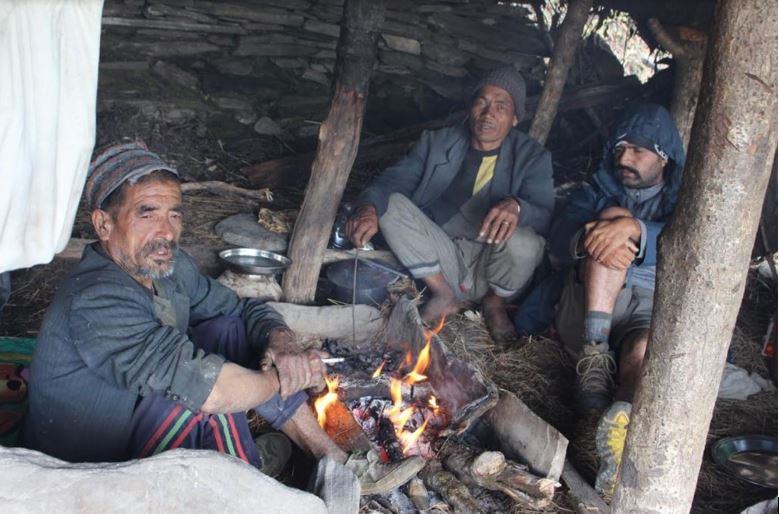Not all those who wander are lost
Badri Baral
I know travelling for a genuine reason needs guts which I do pose a lot. On 12 May 2018, We travelled Kuse Rural Municipality, Jajarkot, Nepal for red panda conservation project. Desolate newly constructed dirt track country road from Khalanga (Headquarter of Jajarkot) over the highlands alongside took us to almost heaven, Kuse Rural Municipality. The glistening pyramidal dome of Kuse Muse Mountain, Thakuri culture, warmhearted, well-behaved, and well-intentioned villagers was there to welcome us.
We braved untimely rainfall-induced lower temperatures and the high altitude to scour the wind-blasted mountain forests for at least evidence of red panda all day during our stay for about one month in the field. One day, we had lungs bursting forests survey for about 5 hours with an eye out for endangered red panda. One can imagine how tough it is to walk among bamboo clumps with dewdrops and how much energy one can lose doing so.
We walked temperate conifer forest and adjacent broadleaf forest with a tall understory of bamboos for five hours. We came up with some evidence like pellet groups, and scratch marks. Body soaked with sweat and dresses with dew on bamboo, hunger, thirst, loss of energy weakness, we fought with these conditions and got our energy level up and got back to the shelter. After having a meal, we slept by the side of fire inside sleeping bags and local field assistants with few clothes in sheds roofed with high altitude dry grasses. Heavy rain showers in the midnight started entering our refuse from the roof. Water started flowing through our bedding materials.
We started searching plastic that we had bought to use if in case of rain to protect our remaining clothes and food materials. We somehow were able to manage some space to accommodate us by the side of the fire that we lit again in the midnight. Despite of exhaustion, at that moment, we were not able to arrange for sound sleep. After 2 hours it stopped raining and we wrapped our bedding materials with plastic to sleep for the next few hours.
Next morning we wake up and had tea and breakfast and planned to shift the next destination for red panda study. We hiked for three hours to the next shelter. After reaching there, two of us started maintaining its roof and two went to search for water for preparing food. After getting the roof maintained, we searched for firewood and waited for our friends to bring water for about two hours. We just had two utensils for taking water. After two hours, we found the guys carrying water in available resources like utensils and plastics.

Sudeep, my colleague later on shared the story about water harvest. They had collected the water running off the mosses and algae in the big scary rock boulders in the plastic that they have taken. If they didn’t have plastic, it would have taken a few more hours to get water. At the moment I was in a dilemma that prior I used to read red pandas are distributed close to the water resources. At the moment, we're not in the state of taking pictures. Some non-captured and non-clicked moments are always beautiful and remembered forever because these are the moments we had worth experiencing. After having a meal, we started searching for red panda and its evidence in the field; we found some evidence or red panda occurrence there. Apart from pellet and scratch mark, we found a skull of sub-adult red panda this time beneath a large Tsuga tree. The wind stung the toes and bit the nose as we ascended to the red panda habitats from our shelter.
On the way to forest patches in Ward 8, we halted in school for drinking water. Ganesh Bahadur Thapa, a school teacher, shared his experiences working with few other researchers before. Early morning he accompanied us and we ascended the forests. After an hour walk, we encountered seven-eight fresh pellets on the ground and again seven-eight fresh nearby. We started searching silently. As defined by Andy Dufresne, hope is a good thing, maybe the best of things, and no good thing ever dies. Ganesh, later on, came up with a good thing, and no good thing ever dies and he informed us about red panda encounter, we recklessly ascended upholding camera and the moment just fascinated which took four years of sweat, determination and hard work to encounter red panda. It was the moment dream come true moment for me.
At the moment I came to remember the quote by Alex Rodriguez “Enjoy your sweat because hard work doesn’t guarantee success, but without it you don’t have a chance” which is the take-home message for those working in the field of biodiversity conservation.